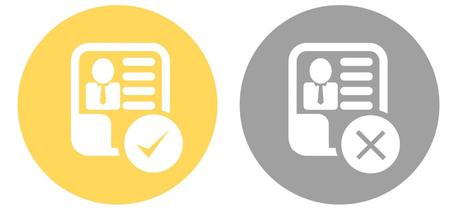
When it really comes down to it, there are two types of employees. There are those who create problems (and, perhaps, unnecessary drama) in the workplace-and then there are those who solve them. No matter what type of industry you work in, what type of job you have, or where you're headed in your career, it's essential to be able to objectively assess which type of worker you are. After all, your level of success (and happiness) in your career really depends on which category you fall into.
Here are some examples to determine if you're a problem solver or a problem creator for employers.

Problem Creators: Bring bad experiences and memories with them from job to job.
In your last job, you had a micromanaging boss from hell. Not only would she pass by your cubicle at least 10 times each day, but she would sit on your desk (yes, sit on it) while you tried to work. She would incessantly check up on you, read through your emails over your shoulder, and constantly pried into your plans for the weekend. You swore that no boss would ever, ever do that to you again. As a result, you're cold and cut off from your current boss, and you get upset whenever she comes by your desk because you assume that she, like your previous boss, is trying to micromanage you-and you're not having it.
Problem Solvers: Leave old baggage at the door when they start a new job.
You know that with any job, there are bound to be some pros and some cons. Even if you had a tough boss in the past, (and frankly, who hasn't?), you know well enough that no two bosses are the same, and you have to treat your current boss with the respect that she deserves. (Plus, you know that there are ways in which you can manage your boss!) You view each new job as a fresh, blank slate, and give both your boss and new colleagues a chance to get to know them before making any harsh judgments.

Problem Creators: Present problems to employers.
You just found out that your colleague is pregnant and doesn't plan to return to work after her maternity leave. Also, a competitor has just created a logo very similar to your company's. And the copier is broken-again.
For a problem creator, there is a never-ending well of woes that can be presented to a boss. From personal problems (to personnel problems), and everything in between, nothing is off-limits for problem creators, who love to share any negative issues with their bosses.
Problem Solvers: Present problems and solutions to employers.
As you're working, you discover a glitch in the program that you're using. But your first inclination is to call IT, not tell your boss that you can't work and ask to go home for the rest of the day. Problem solvers know that issues will arise as they go about their workday, and they are prepared to work through them. They understand that approaching their boss with a problem-and a solution in hand-is the best way to handle tough situations at work.
Problem Creators: Refuse to adapt or learn new skills.
When you first applied for your remote job, you were told that you would have a certain set of responsibilities. Now that you're in your position for a few months, your boss meets with you and wants to give you a few new duties. Even though it wouldn't require a lot more work, you're unhappy with the changes in your job-and your surly attitude is sure to let everyone know it.
Problem Solvers: Grow with the position.
Sure, you were hired for a specific type of job, but it's virtually impossible to think that you'll be performing the same duties day in and day out every single day until you leave the company. Jobs, like people, change and grow over time, and as a rock star employee, you will probably be expected to grow with the position, too. But if your job changes so much that you are no longer doing what you are hired for, then scheduling a meeting with your boss to go over the changes to your position and find a resolution is a much better option than to become passive-aggressive and not do what you're supposed to do in your job.
It's in every employee's best interest to be-or become-a problem solver. You will learn to deal with issues as they arise in the workplace in a much more professional manner, making you a more well-liked, respected, and above all, happier employee.
Jennifer Parris is a career writer for FlexJobs, an award-winning service that helps job-seekers find professional opportunities that offer work flexibility, such as telecommuting, freelance, part-time or alternative schedule jobs.
Ms. Career Girl was started in 2008 to help ambitious young professional women figure out who they are, what they want and how to get it.

